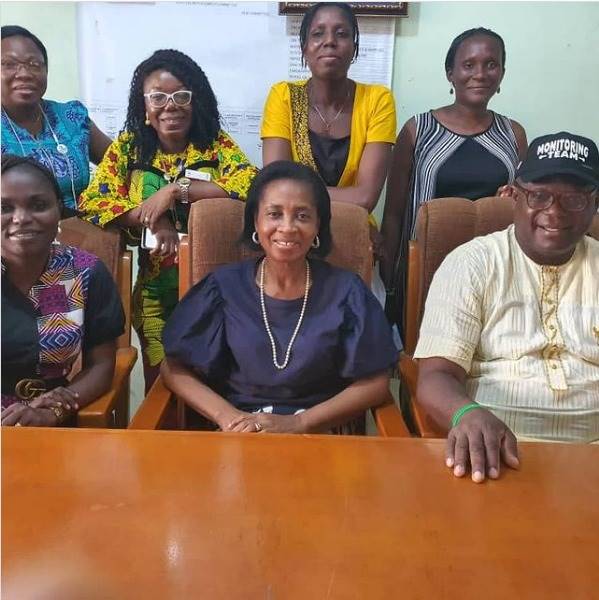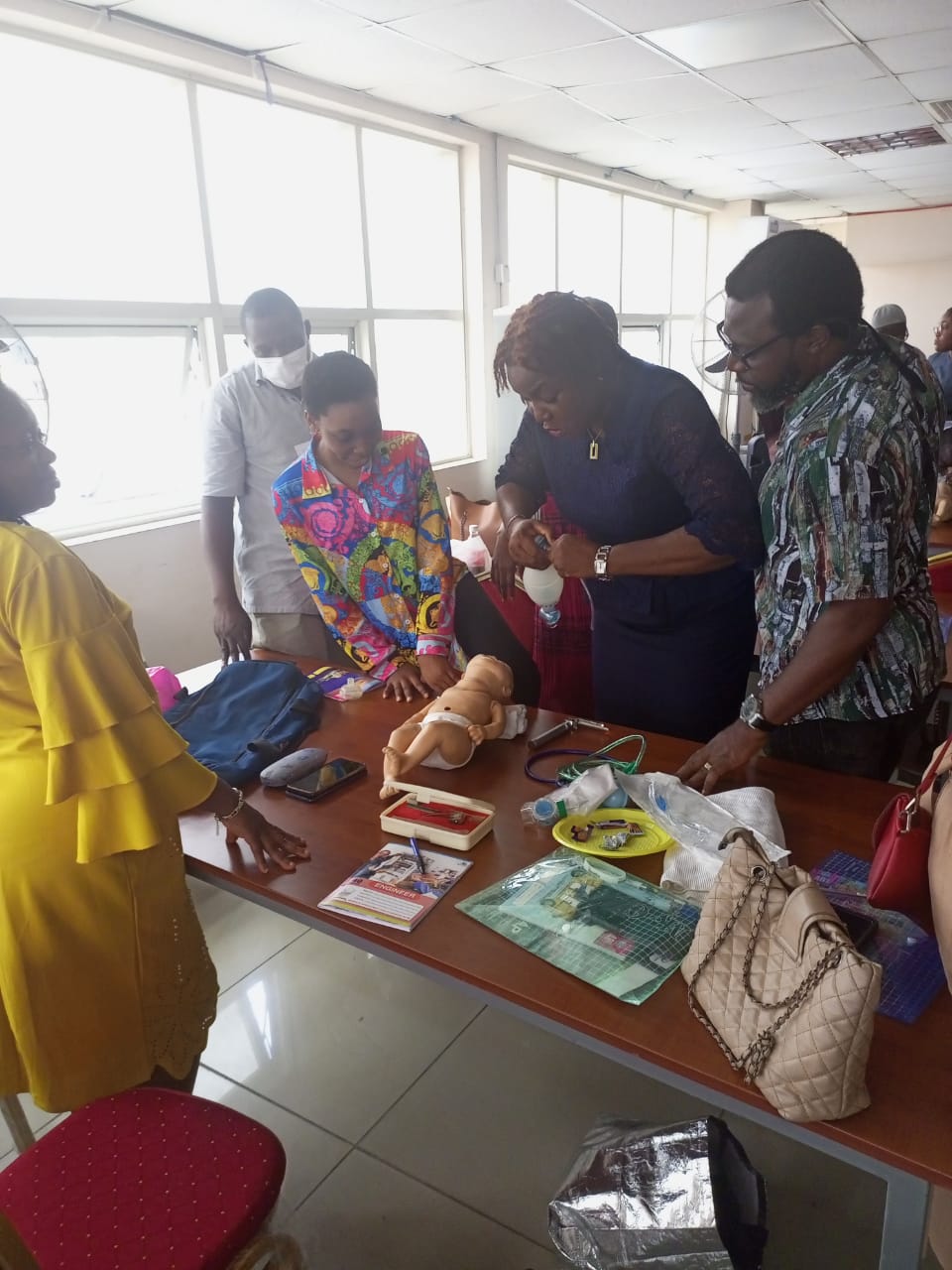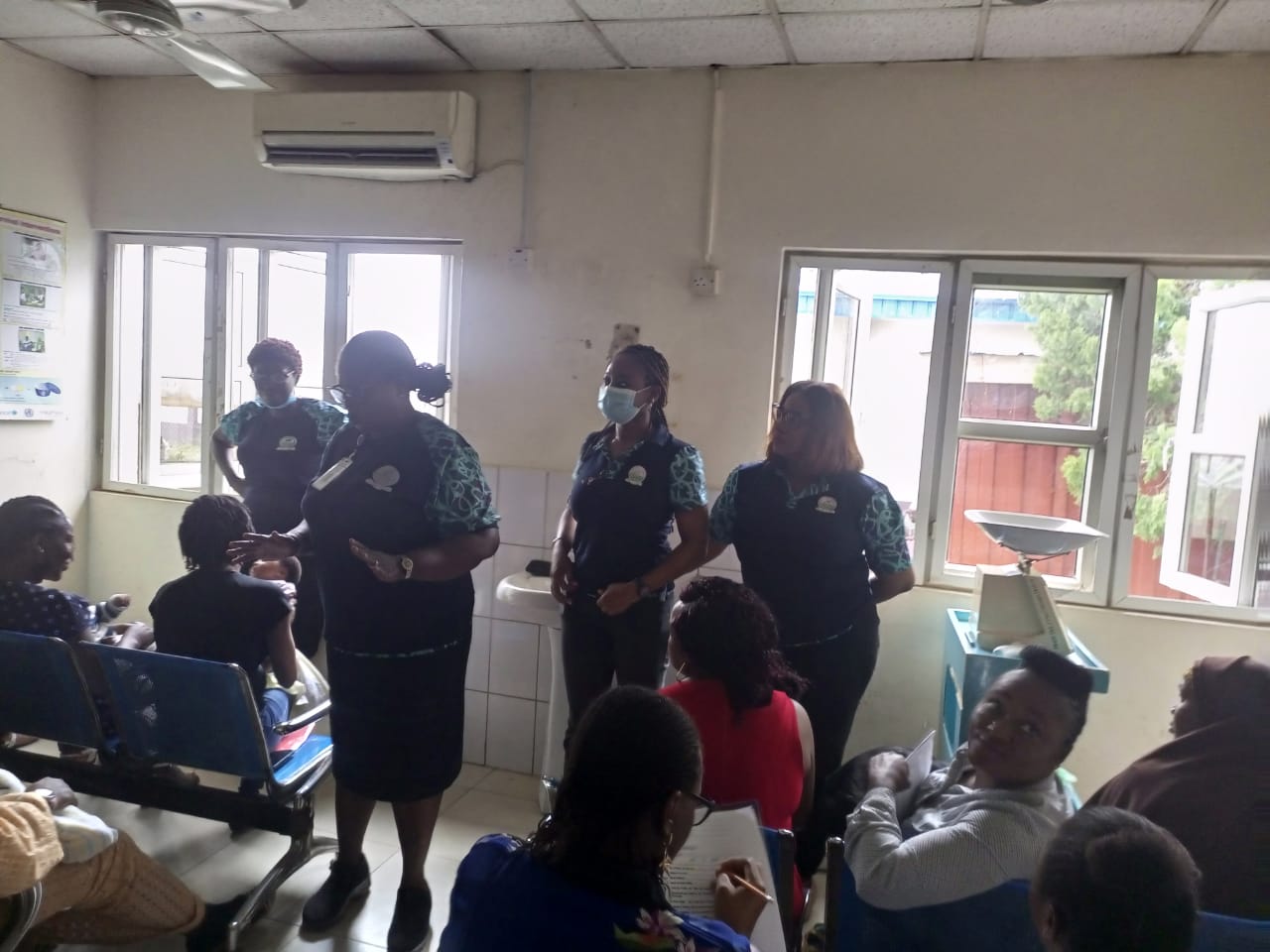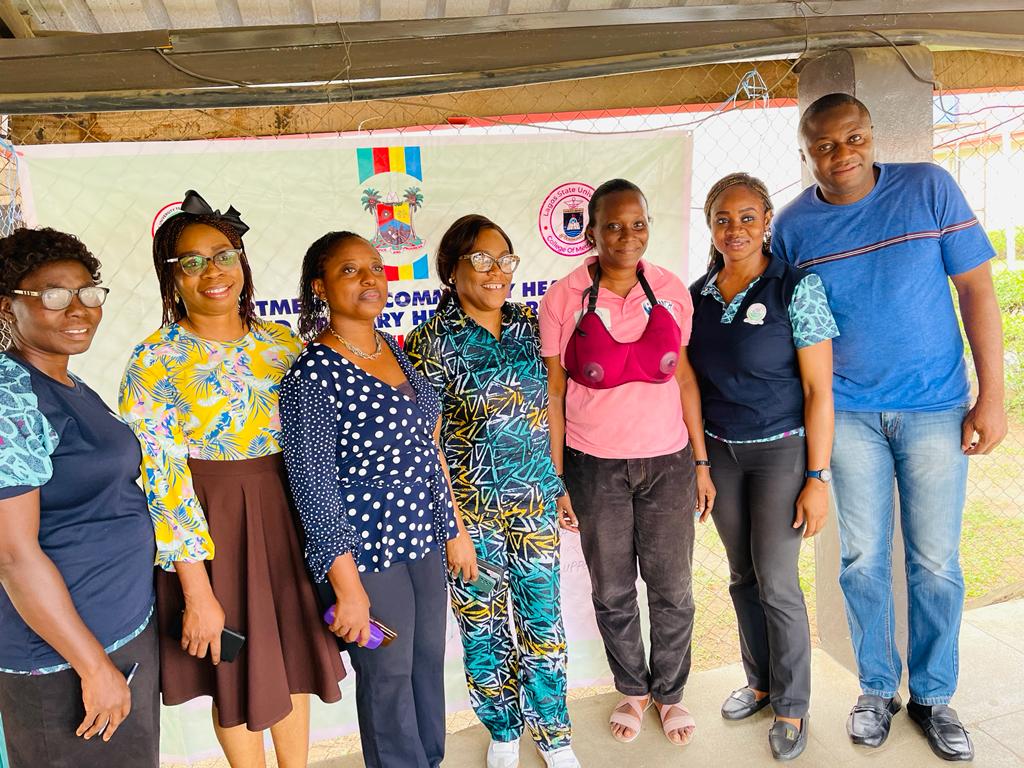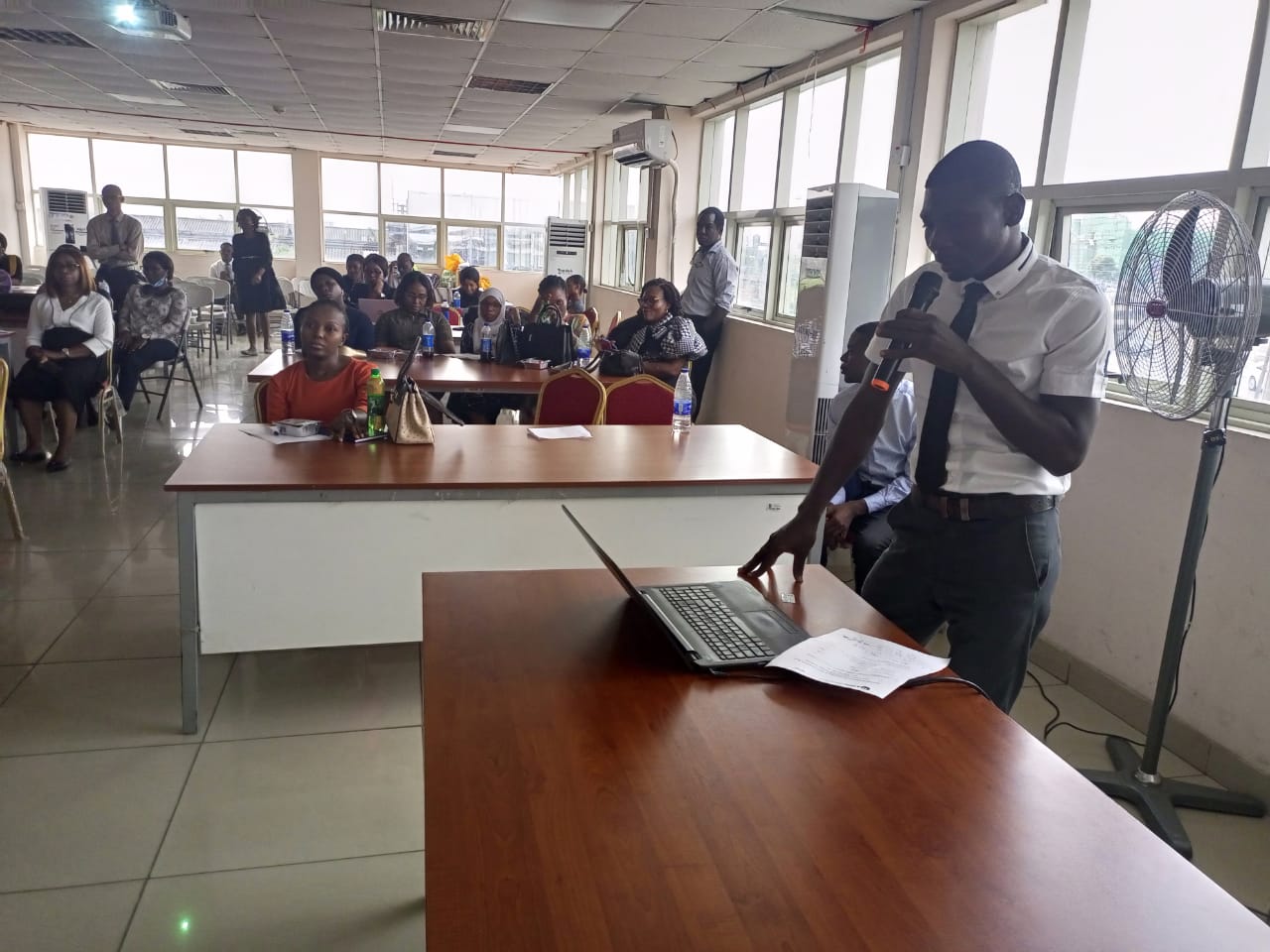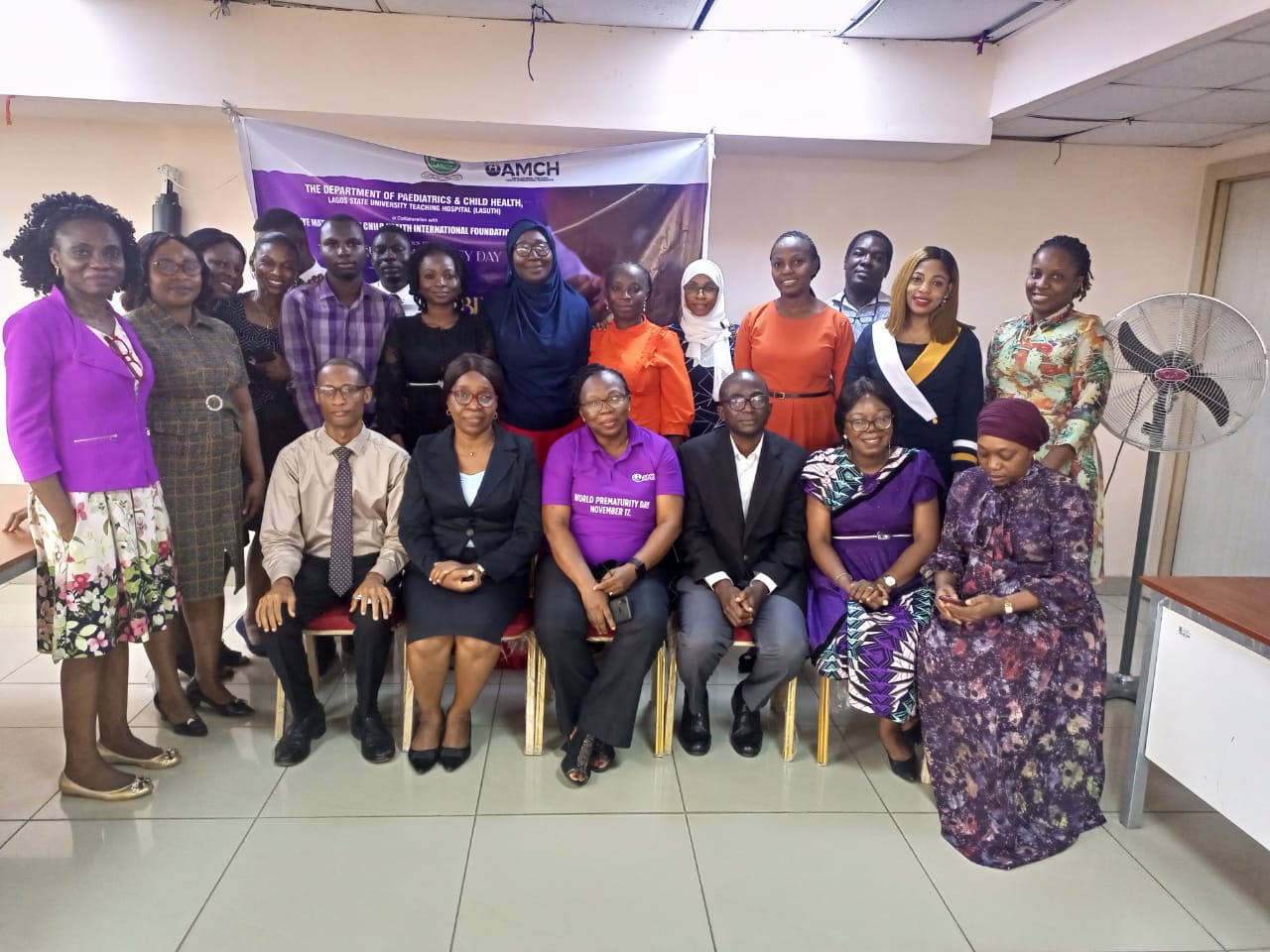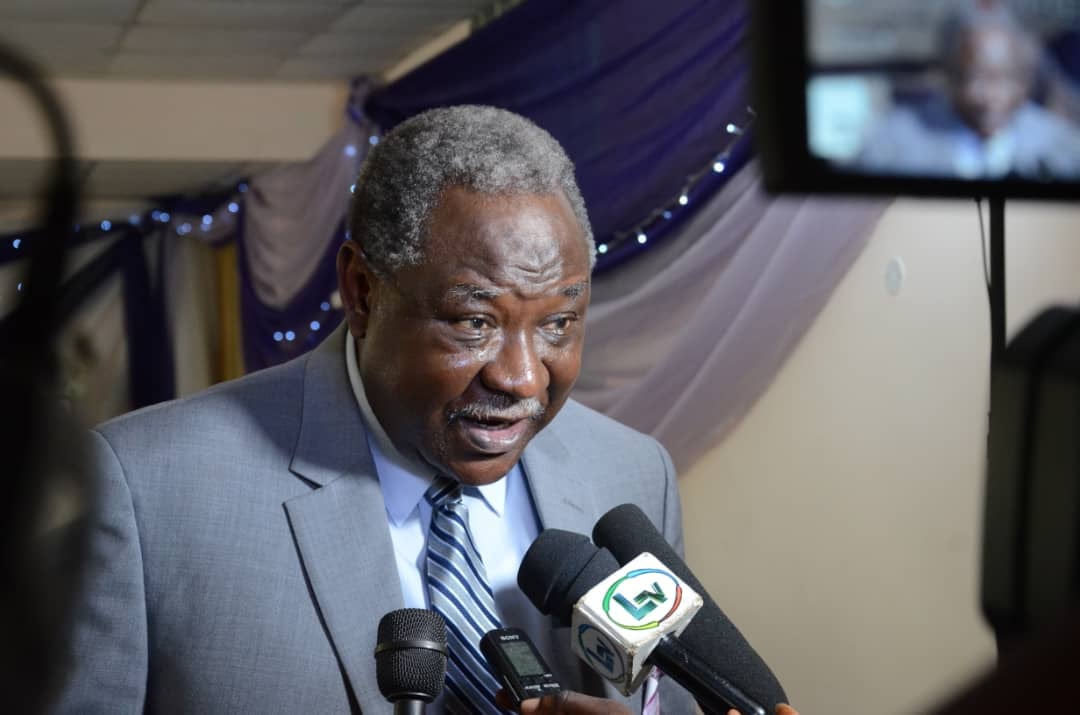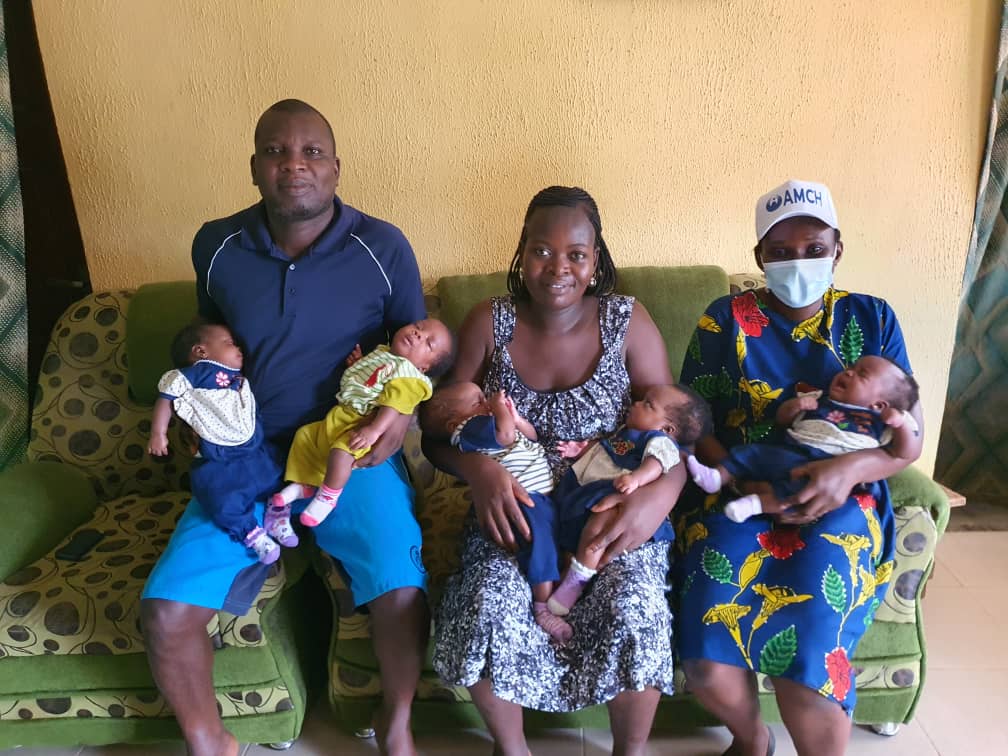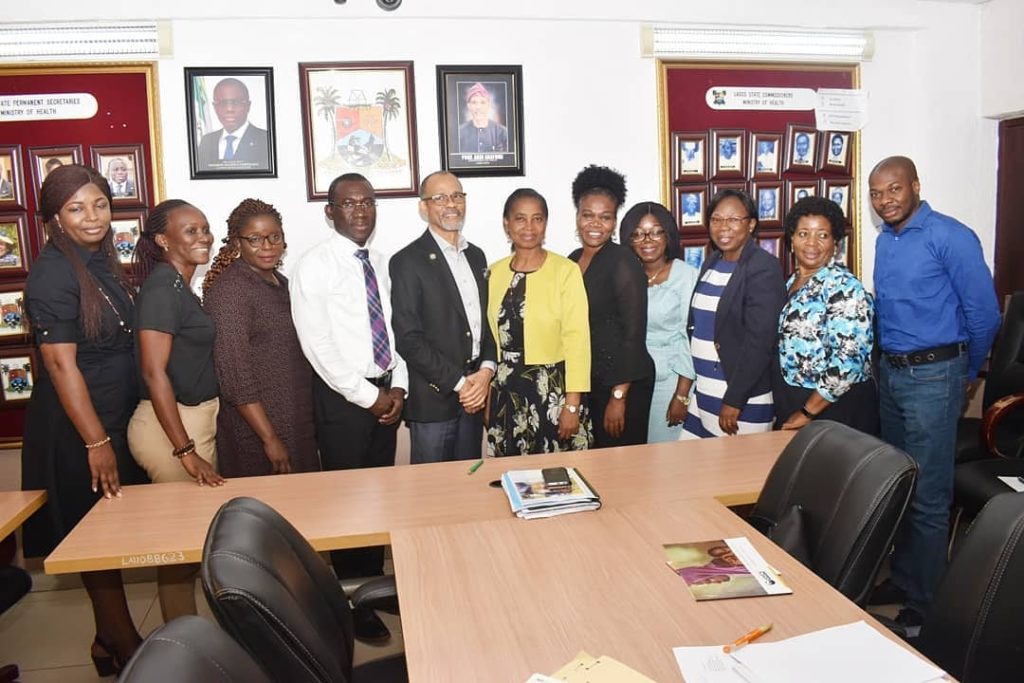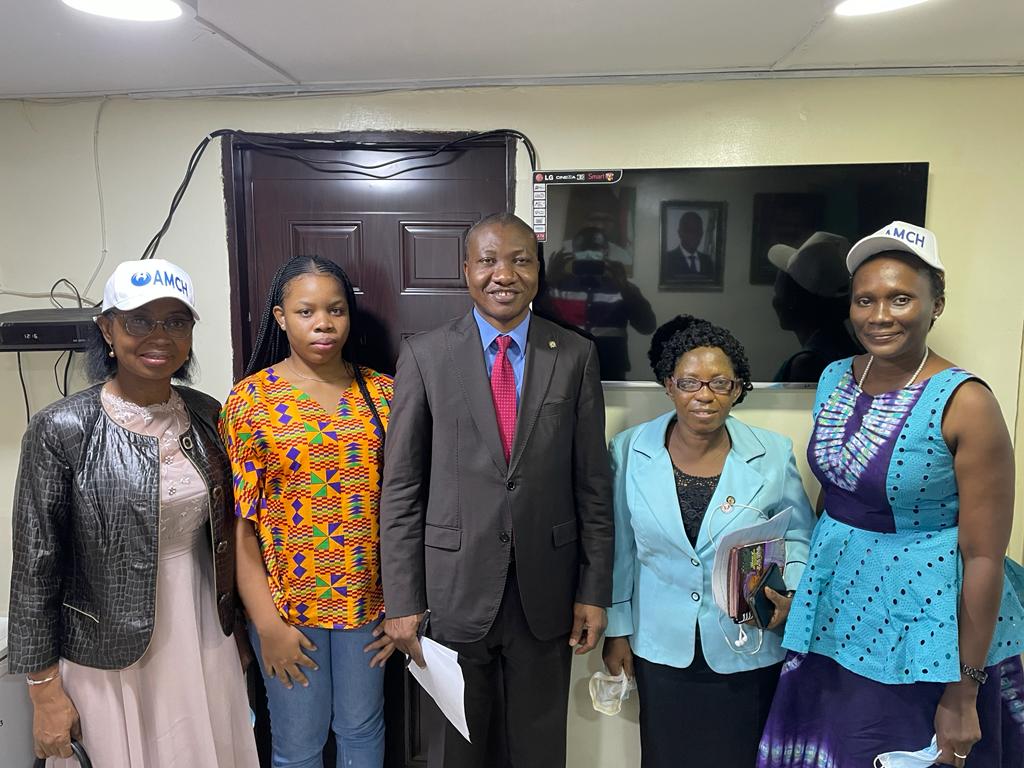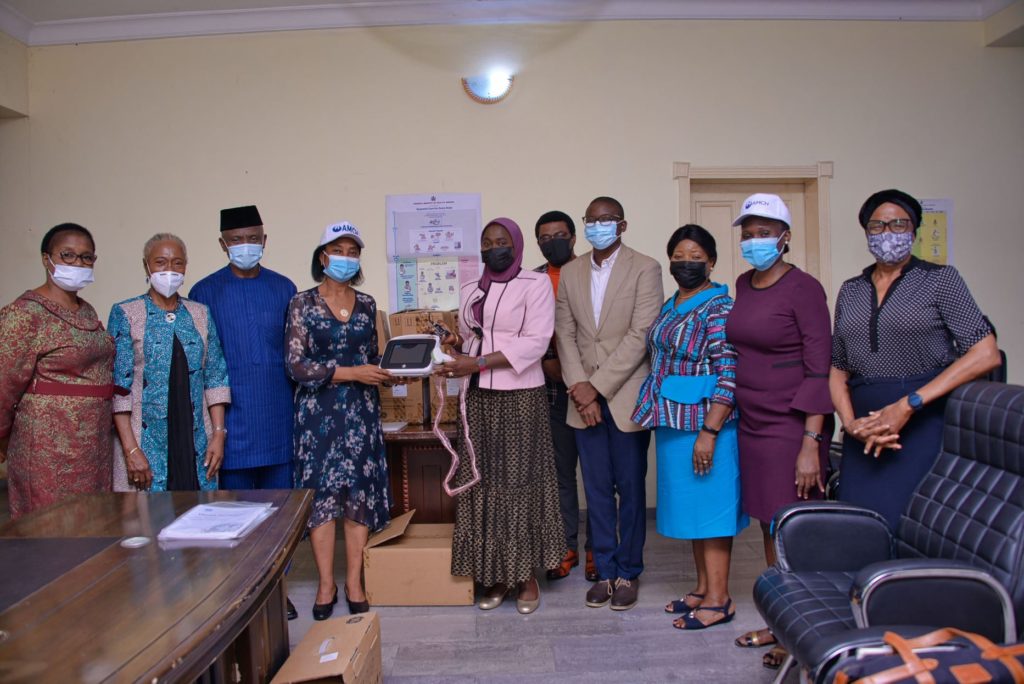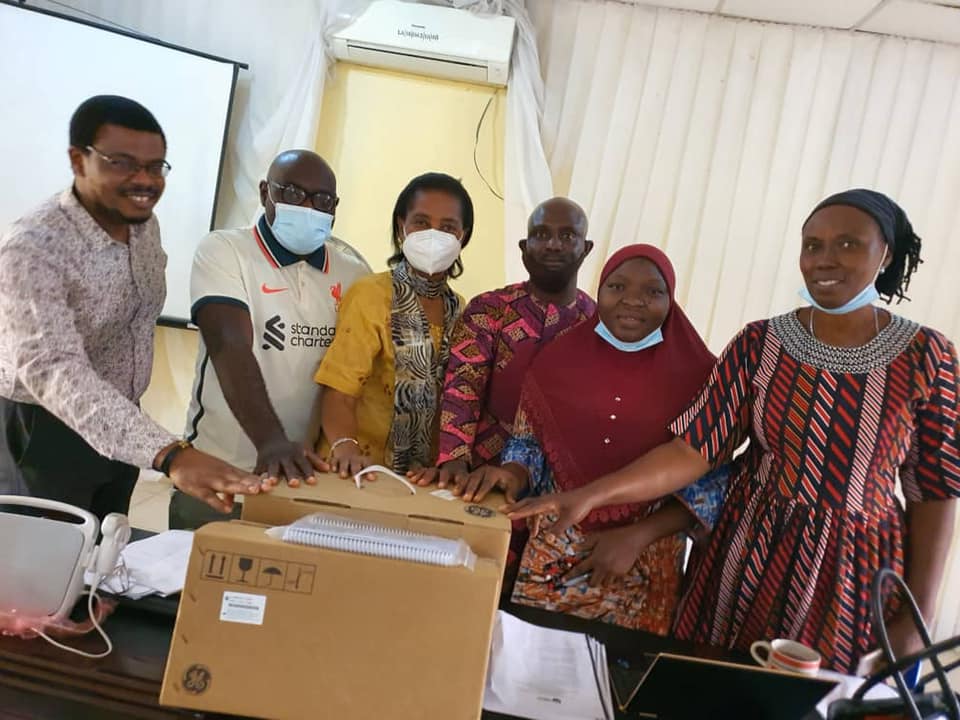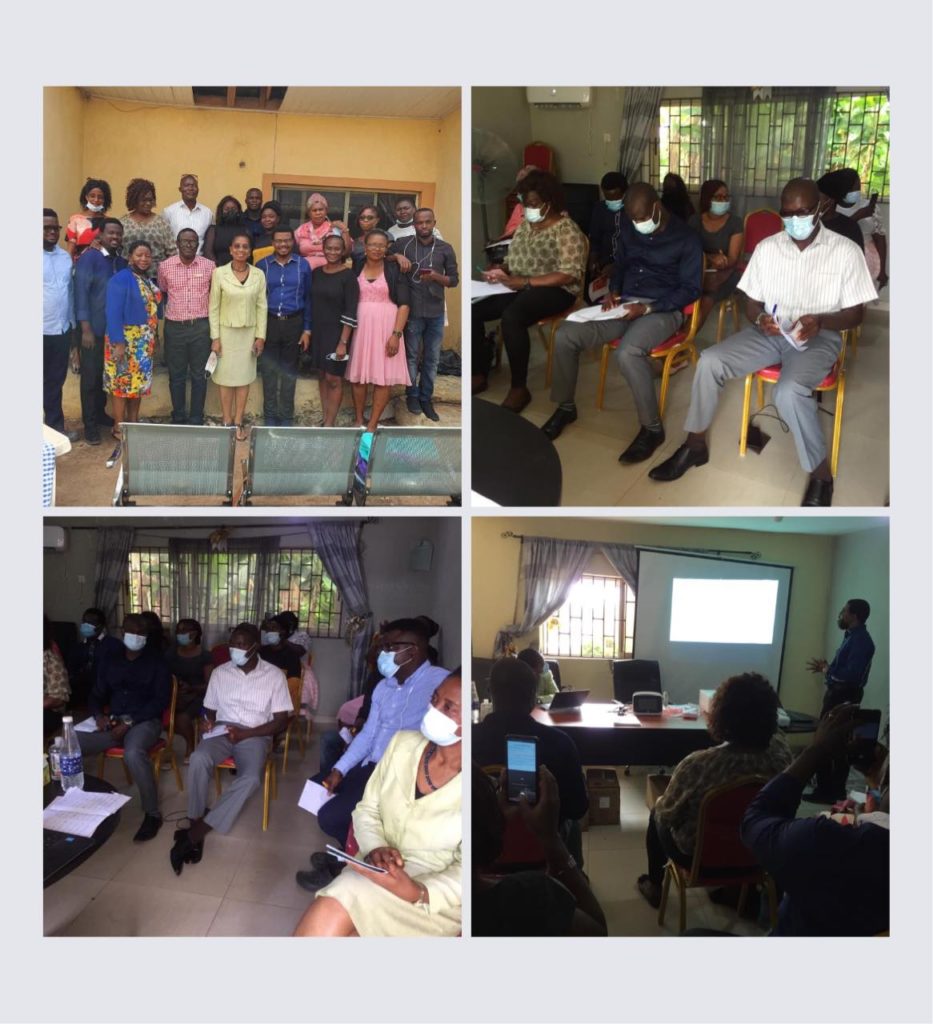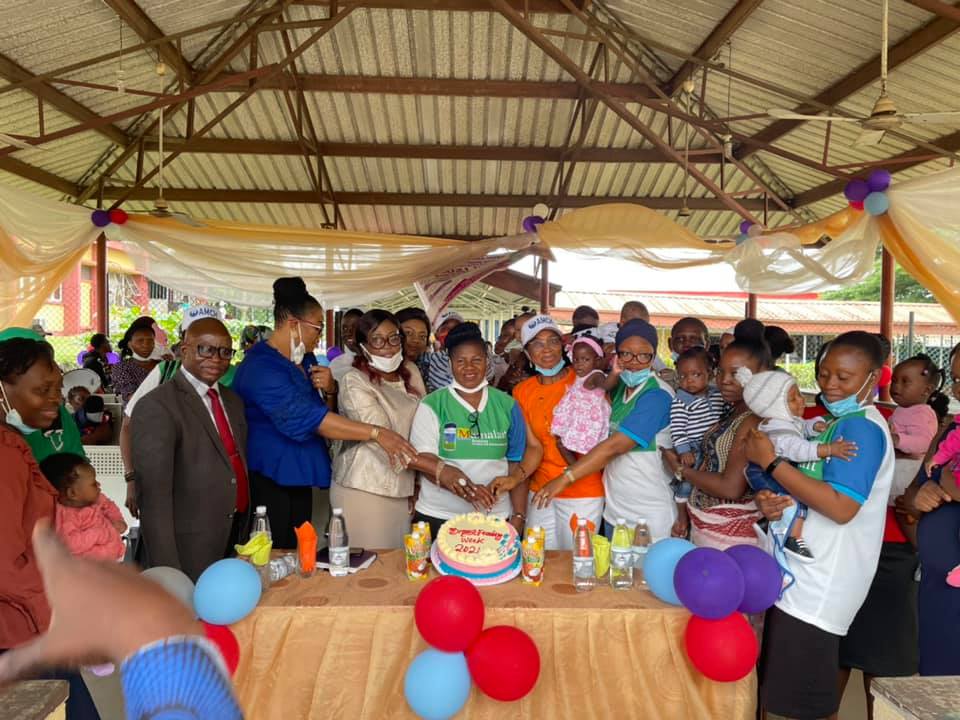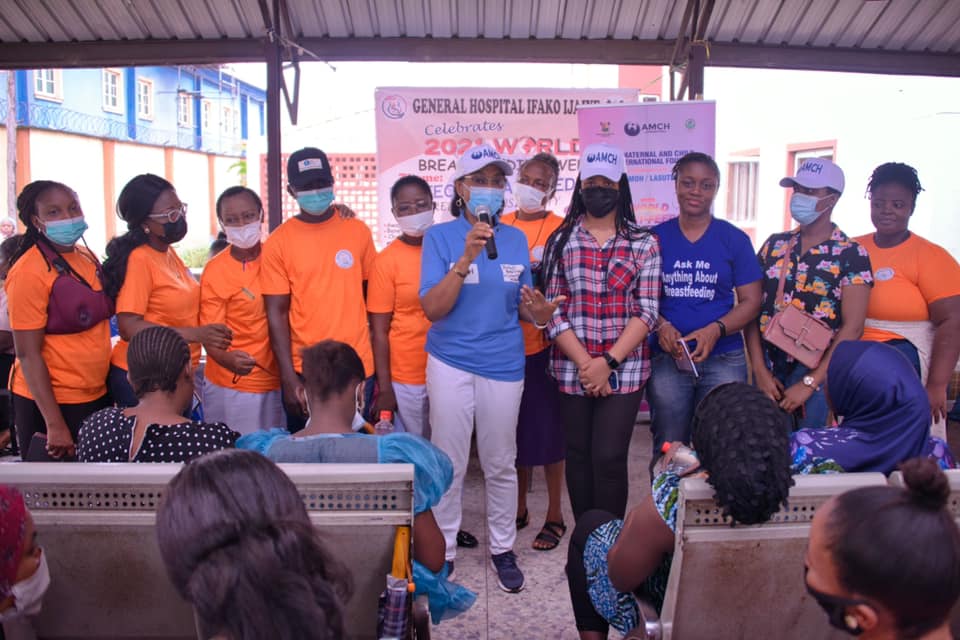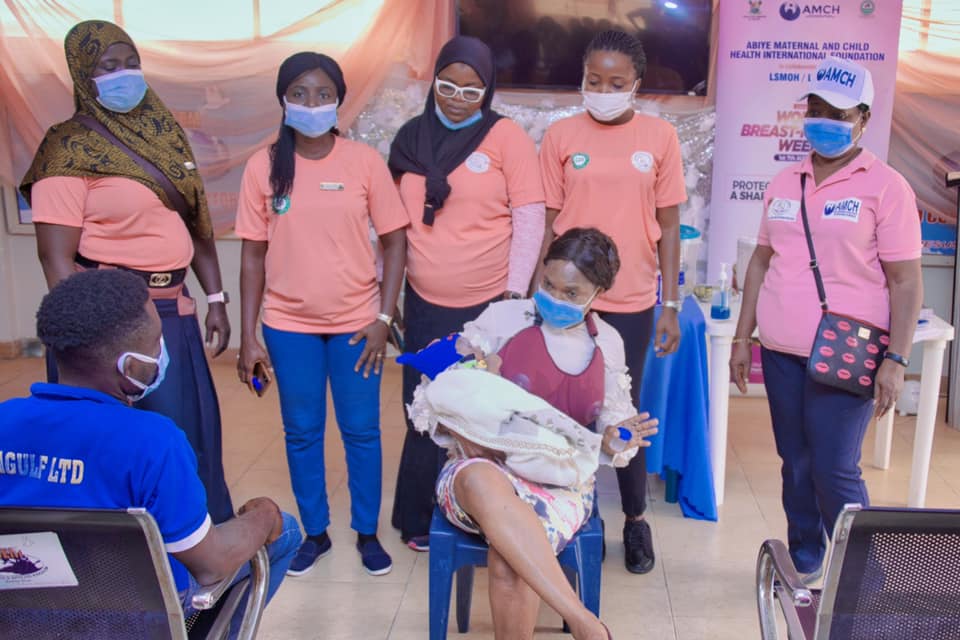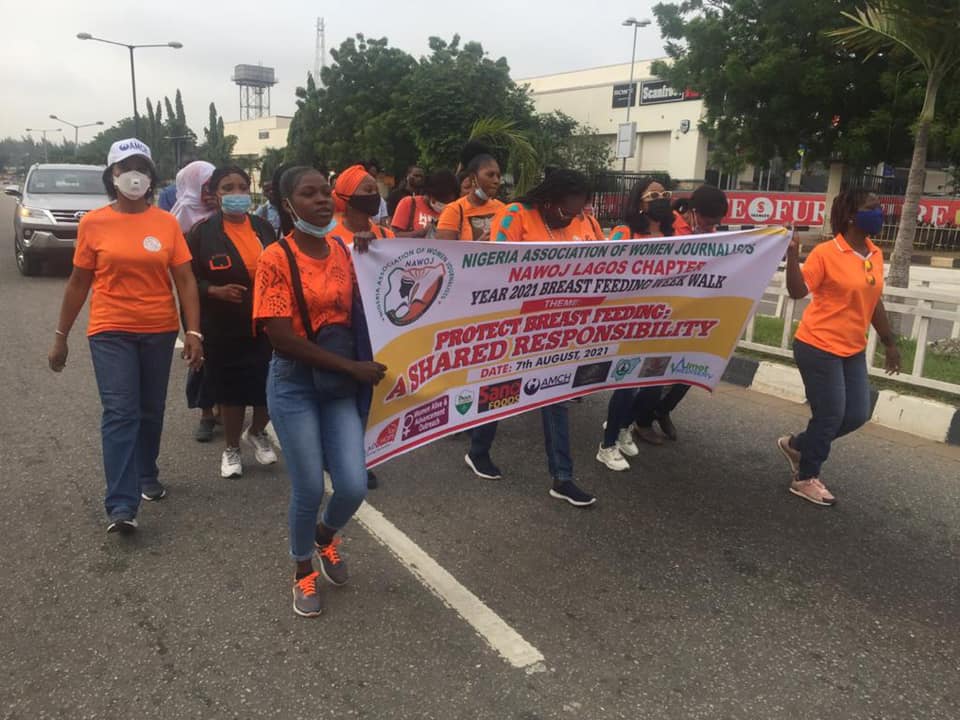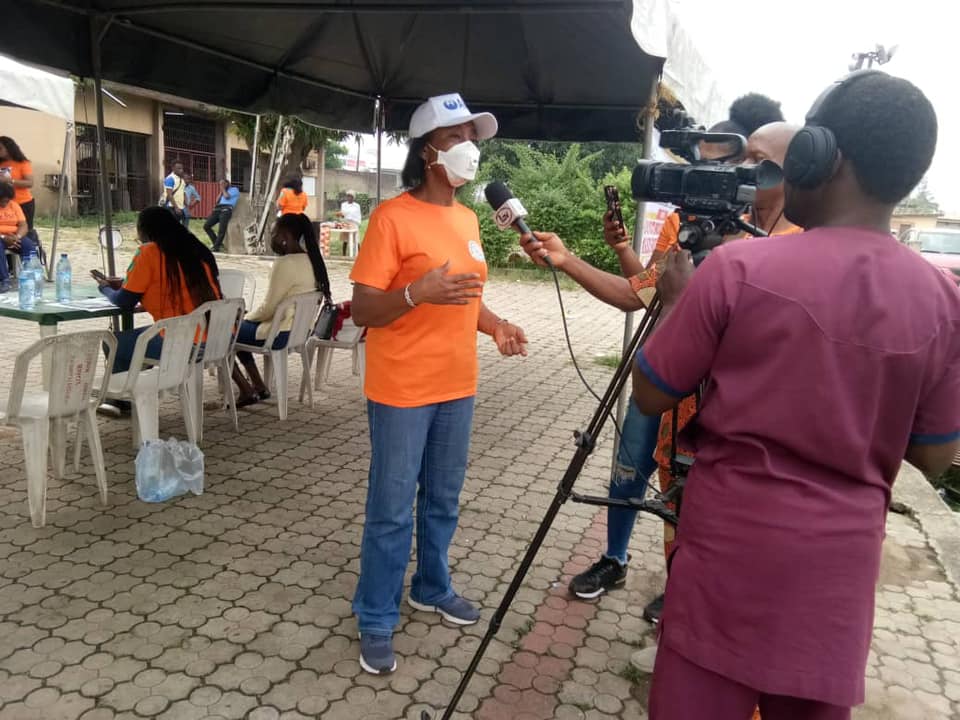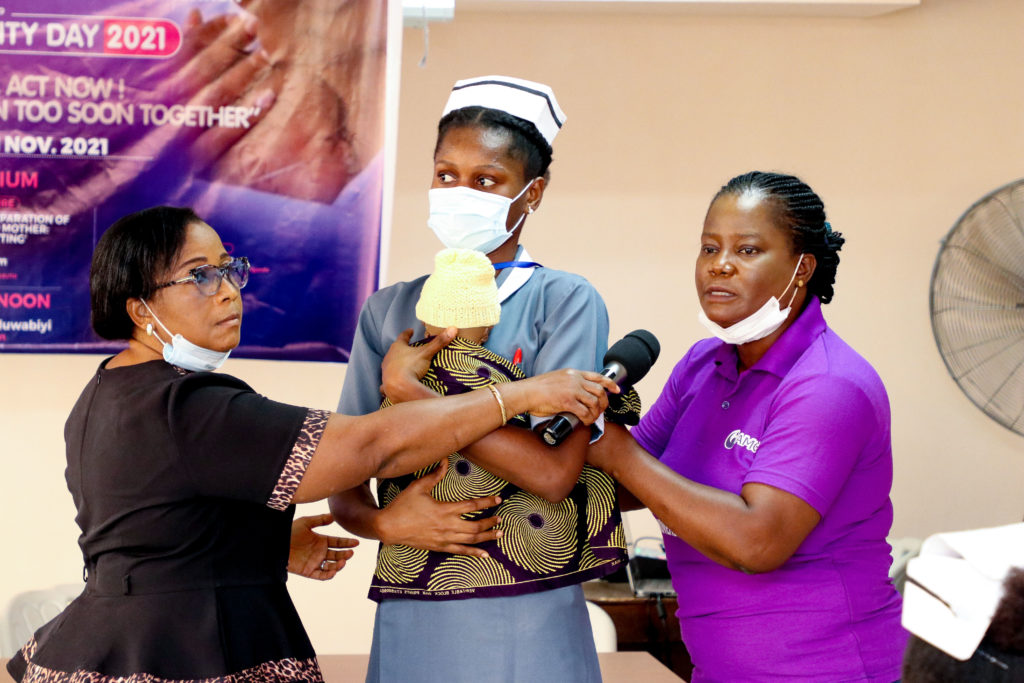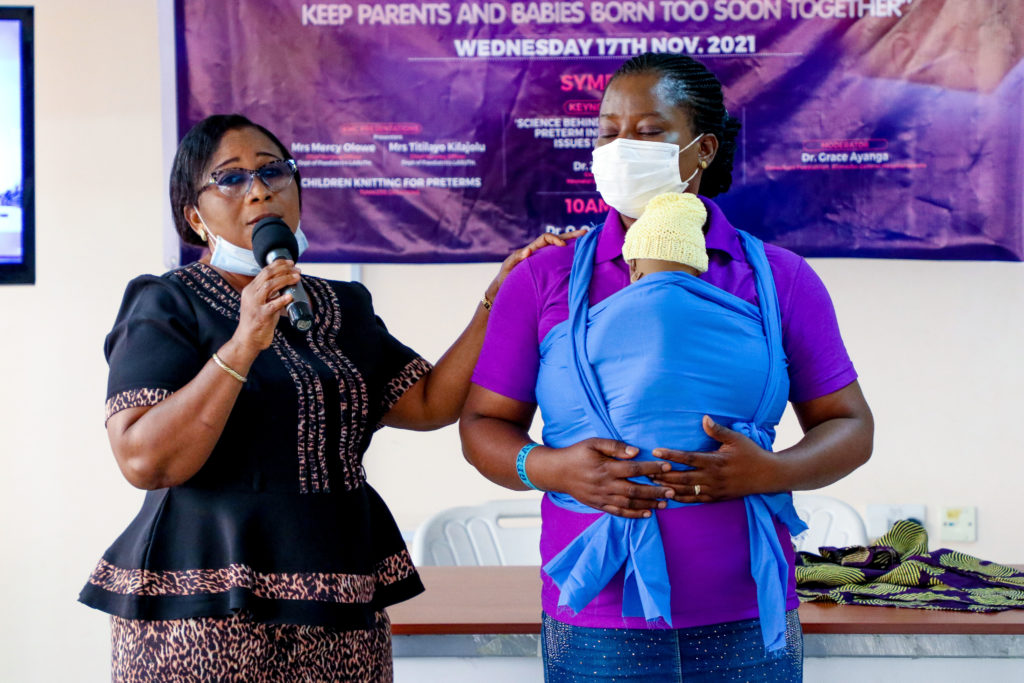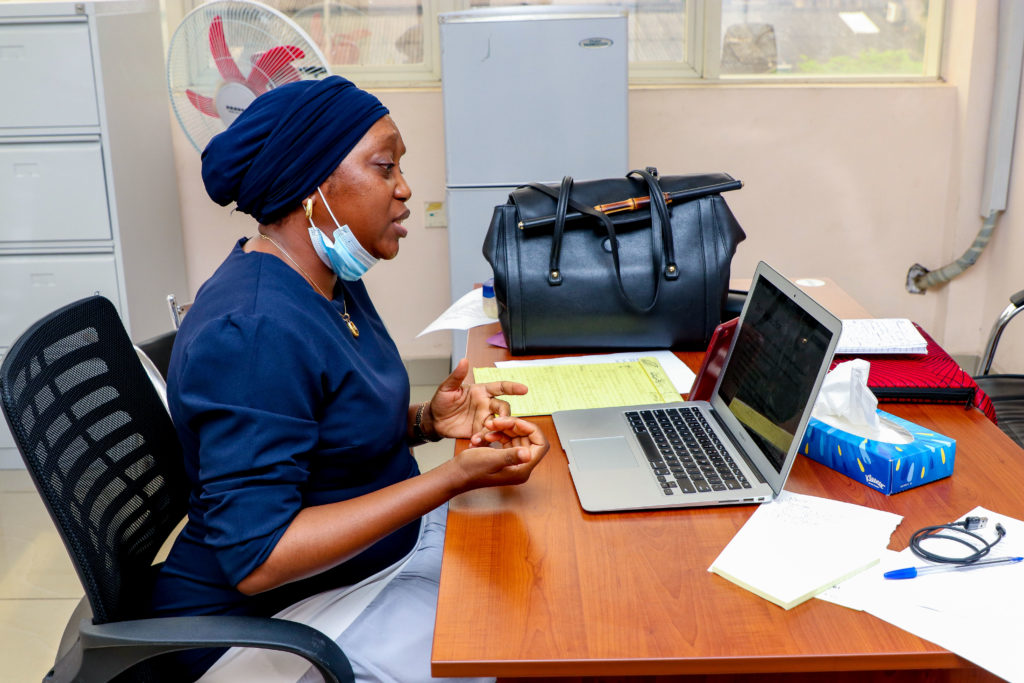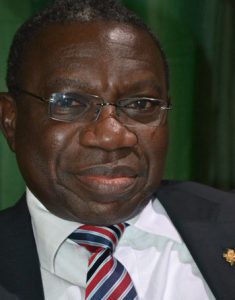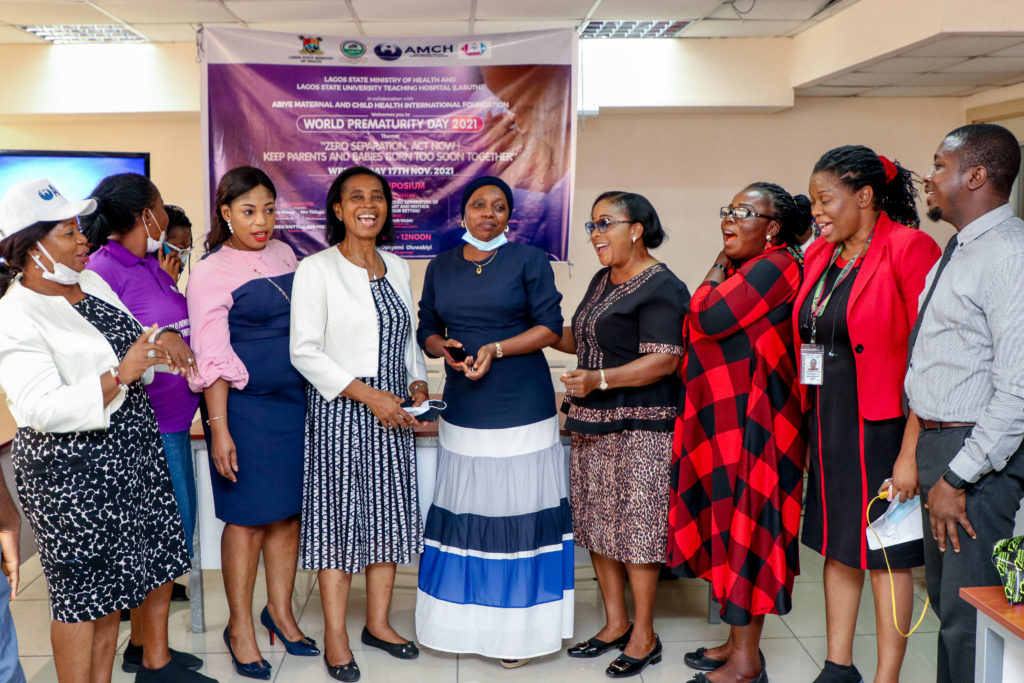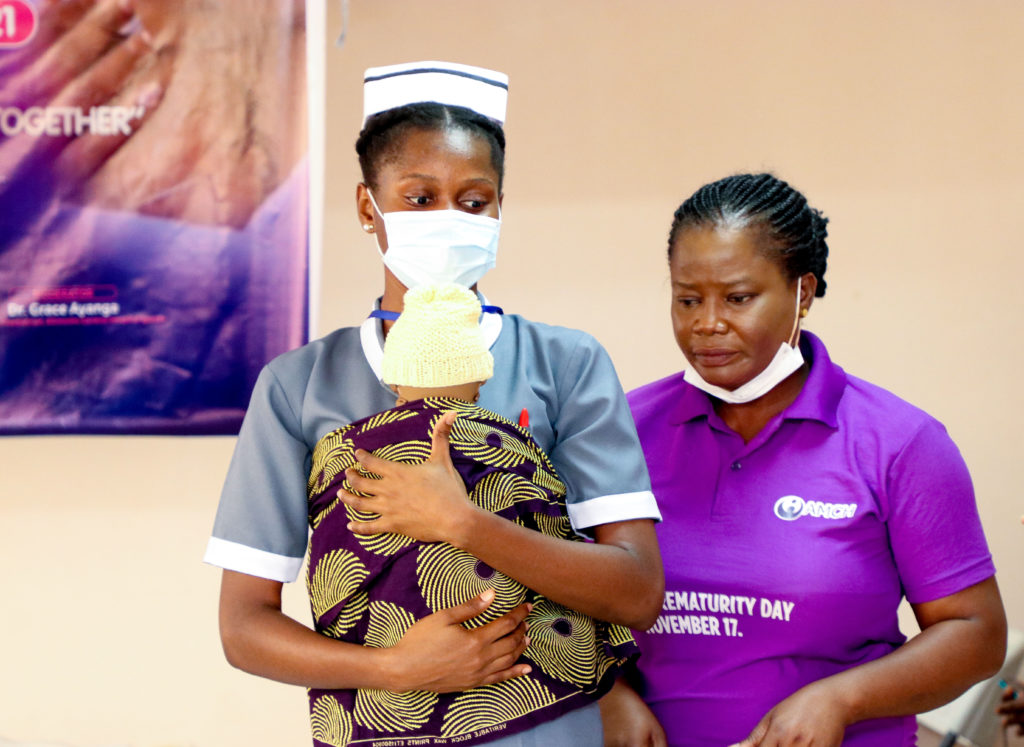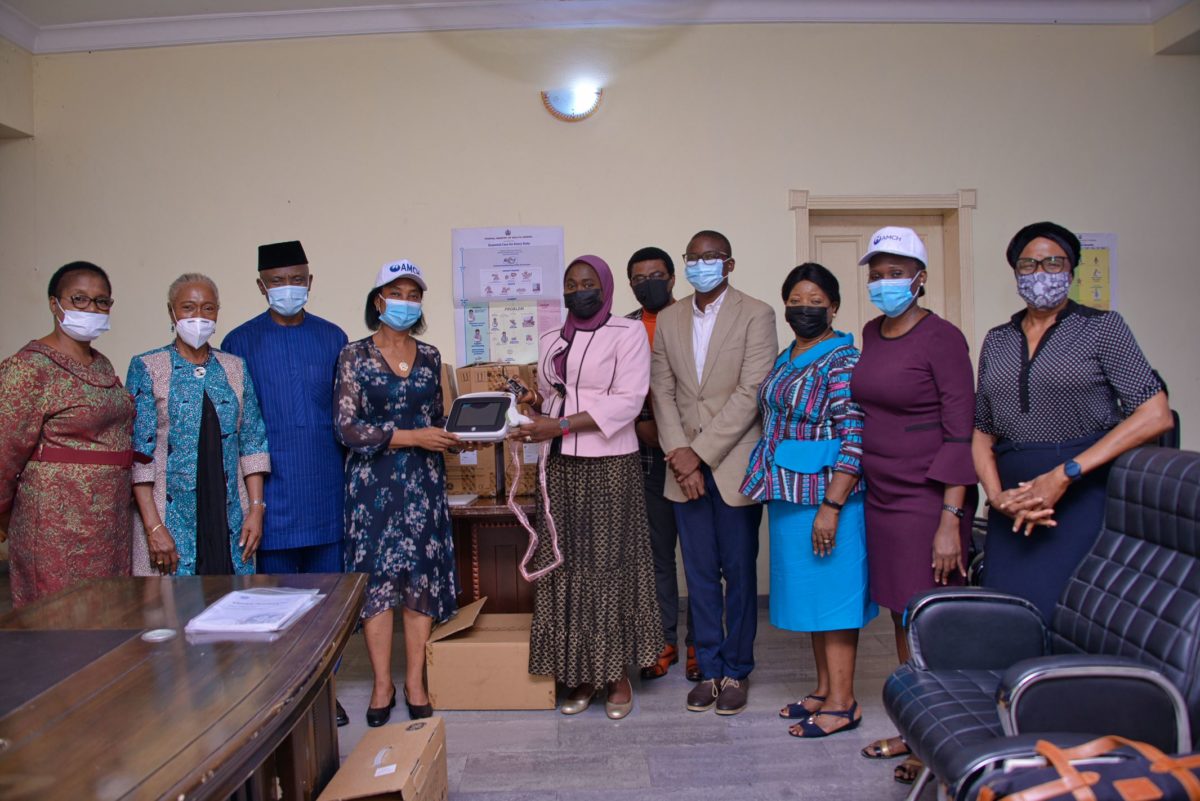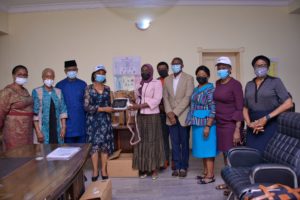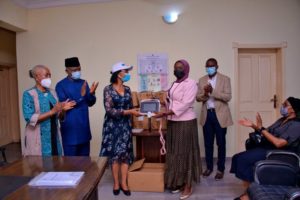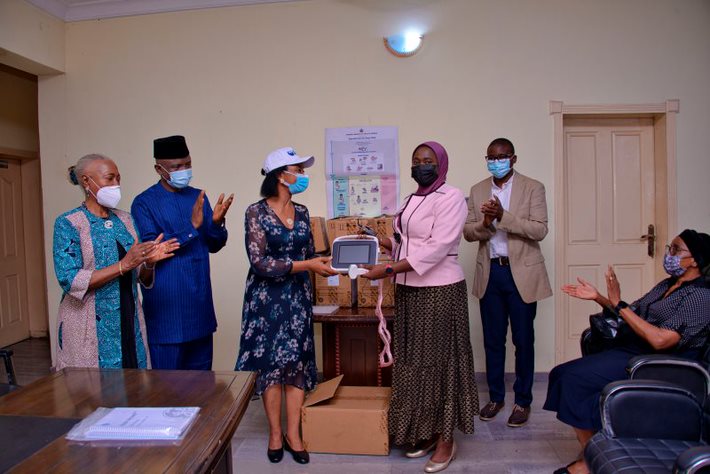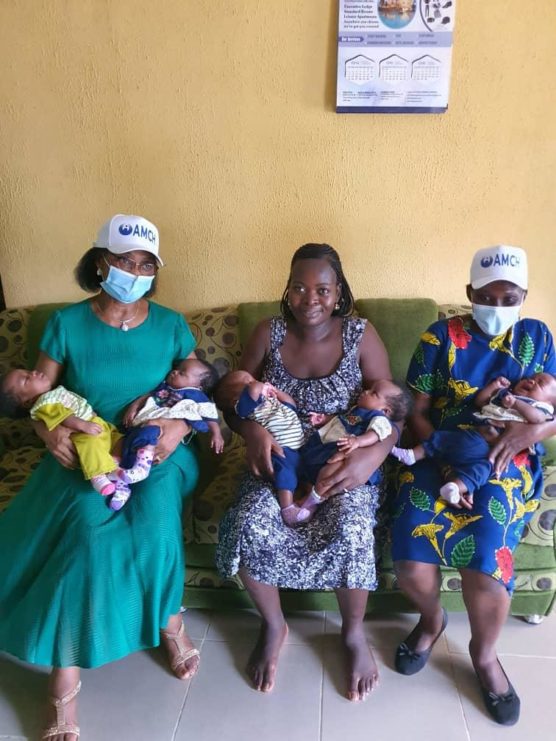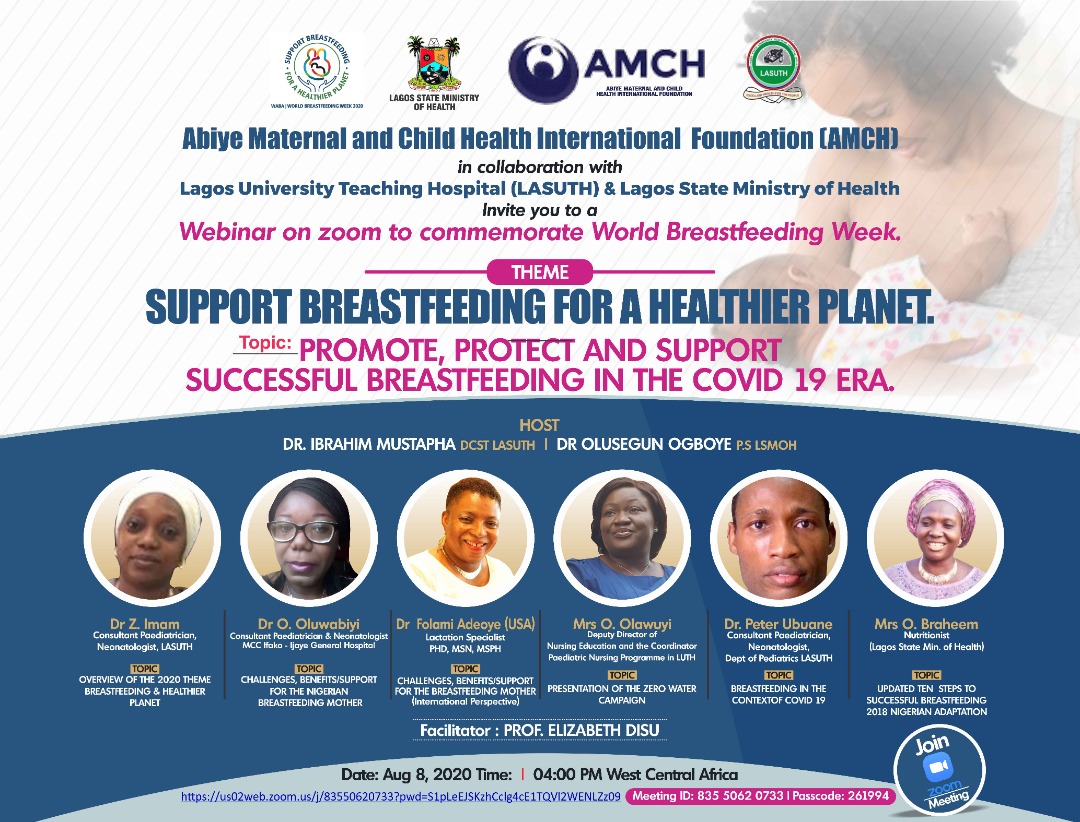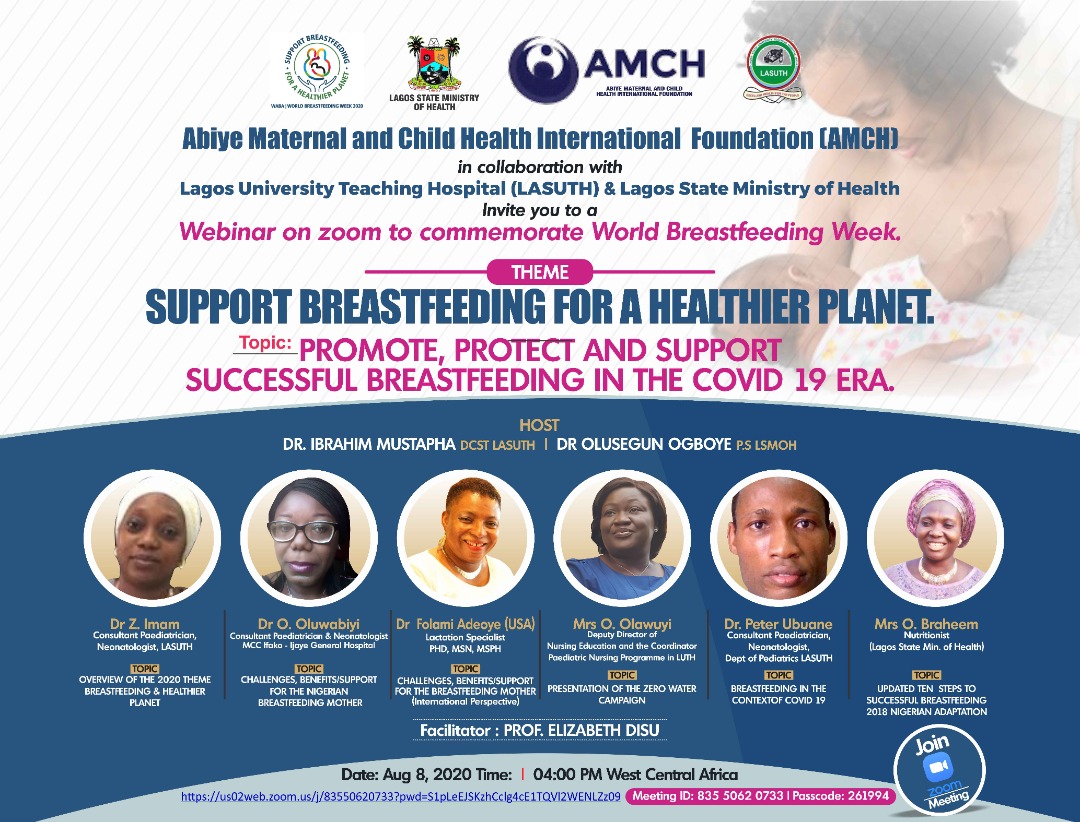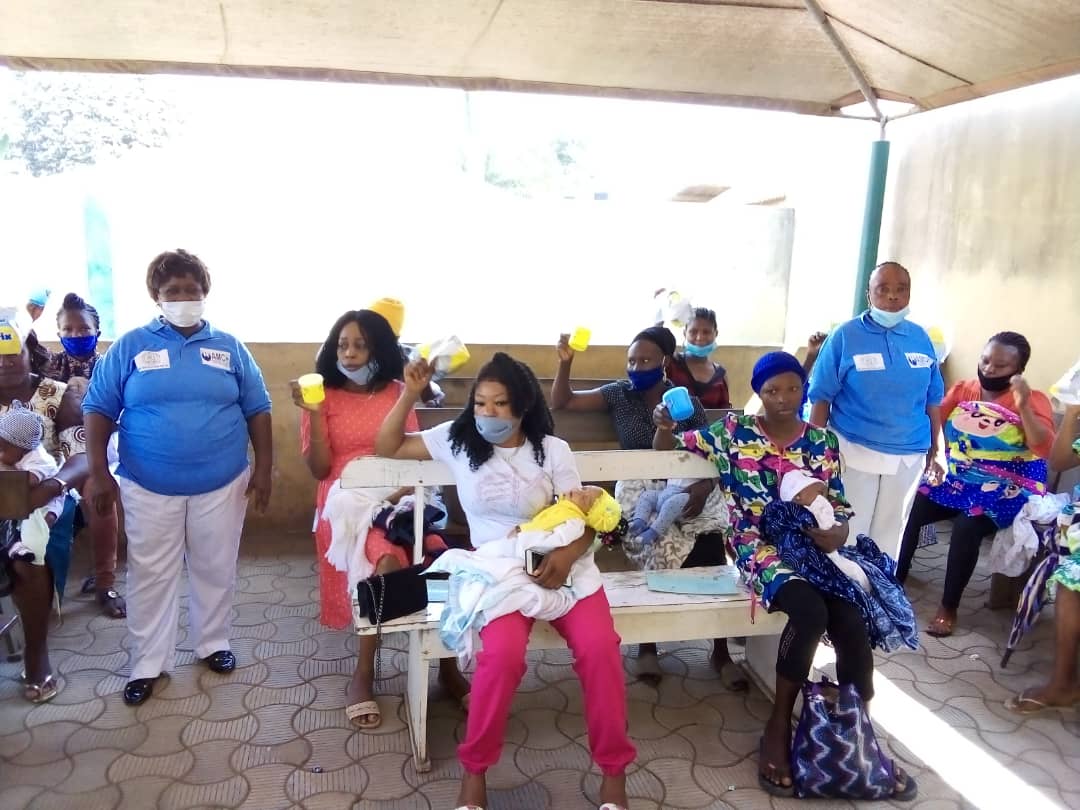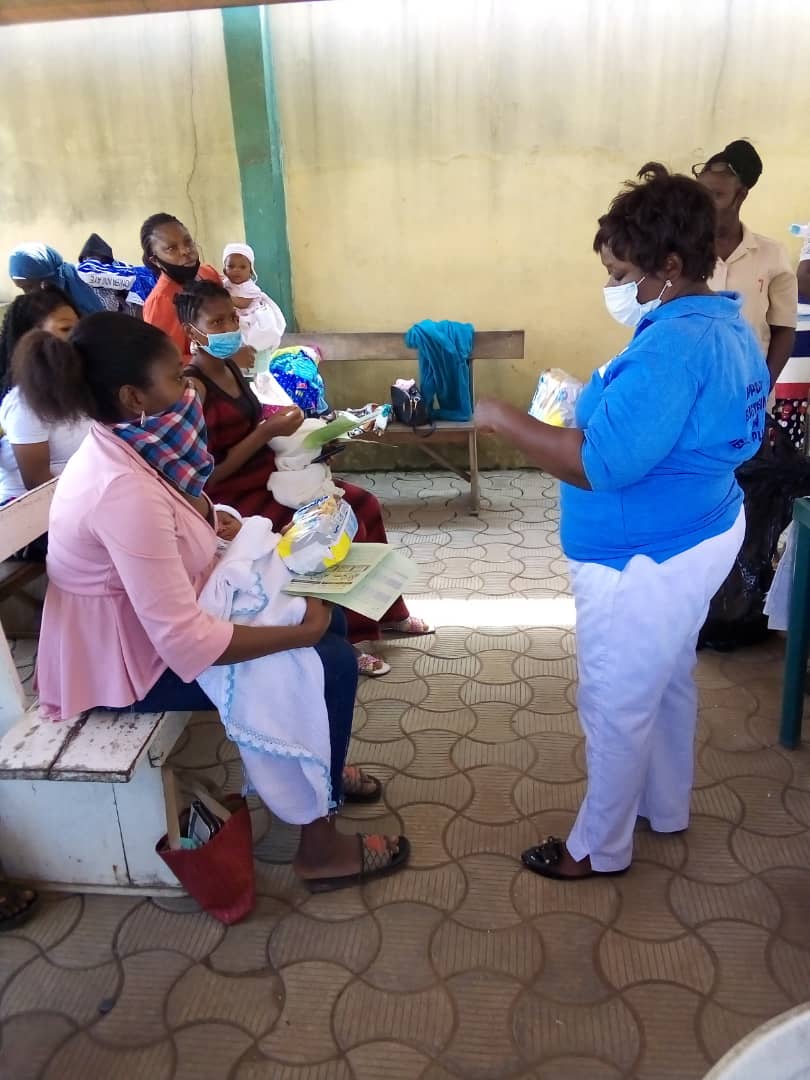Be an advocate for change!
Introduction
What is Obstetric Fistula?
Obstetric fistula is one of the most devastating medical conditions that affect women following childbirth. It is characterized by an abnormal hole connecting the vaginal to the bladder (vesico-vaginal fistula), the rectum (recto-vaginal fistula) or the ureter (uretero- vagina fistula) or a combination of these which leads to uncontrollable passage of urine or faeces or both through the vagina.
Most cases occur when labour becomes prolonged, obstructed and is not relieved promptly. Obstructed labour is usually relieved by caesarean delivery, a surgical operation, carried out by appropriately trained personnel in adequately equipped health care facility.
Prolonged pressure of the bony foetal head against the maternal pelvic bone results in the destruction (necrosis) of the soft vaginal, bladder or rectal tissue that is sandwiched between the two opposing boney surfaces. The dead tissue disintegrates after a few days creating the hole.
Who is affected?
Obstetric fistula now cuts across all age groups; affecting any woman or girl of childbearing age whose labour becomes unduly prolonged and is not promptly relieved. Such women may have been in active labour with strong uterine contractions (labour pains) and progressive cervical dilatation for typically 12 to 16 hours, or even days. Teenage mothers are more vulnerable. Their incompletely developed pelvis result in small-sized birth canals that prevent the easy passage of average-sized babies. Adult women with adequate birth canal may have prolonged labour if their babies are bigger than usual or the baby’s head is abnormally positioned to present a larger than normal diameter. Even older women who have had many deliveries are not left out.
Where does Obstetric fistula occur?
Obstetric fistula occurs in settings with a high maternal mortality ratio.1 Women in low and middle income countries of sub-Saharan Africa and South Asia are disproportionately affected 2 with Nigeria perceived to bear a heavy burden of obstetric fistula.3 Other sub-Saharan African countries with high incidences are Ethiopia, recently reported as having the largest number of women with fistula symptoms, 4Uganda and Sudan.
The burden and impact of obstetric fistula
Reliable estimates of the occurrence of obstetric fistula are lacking because majority of women affected never seek medical help due to their location in remote rural communities or due to fear of stigmatization. 5 Worldwide, about one to two women per 1000 deliveries develop obstetric fistula; 50,000–100,000 fresh cases are reported per annum6 and approximately 2 to 3.5 million women are living with untreated obstetric fistula, almost all entirely in sub-Saharan Africa and south Asia. 2
According to the 2019 Federal Ministry of Health’s National Strategic Framework for the Elimination of Obstetric Fistula in Nigeria, 7 12,000 fresh cases occur per annum while a backlog of 150,000 fistulae await repair. Nigeria thus remains a significant hub for the burden of obstetric fistula. The bulk of these cases arise from prolonged obstructed labour. Though obstetric fistula is more prevalent in Northern Nigeria because of determinants like child marriage and early pregnancy, fistula cases exist in all parts of the country.7 At the current rate of surgical repair, it will take almost nine decades to clear the existing backlog in Nigeria.7
What do fistula patients experience?
Women living with fistula experience continuous leakage of urine, feaces or both. Prolonged contact of urine with the genital skin causes rashes and itchiness around the vulva. In some cases, other injuries encountered from the effect of prolonged labour complicate the situation. These may include the inability to walk properly, bed sores, urinary tract infections and general ill-health.
Some of these women suffer the “double tragedy” of losing their babies who are born dead (stillborn) or die soon after birth due to the distress suffered in the womb from prolonged labour. The risk of stillbirth is documented to be 99 times greater when women develop fistula than if they have a normal uncomplicated delivery.9 The quality of such women’s lives is tragically affected in all domains of life.
Why do women develop fistula?
Though, the direct cause of obstetric fistula, in most cases is prolonged obstructed labour. Lack of awareness of causes of fistula; poverty and low level of education which affect health-seeking behaviours; poor infrastructures, scarcity of skilled birth attendants and inadequate emergency obstetric services contribute to the occurrence.
A common scenario is that of a woman undergoing labour at home. When her labour becomes prolonged, she delays in seeking expert care at the health facility; eventually, when she gets to such a facility after some transport delay, she is not promptly attended to, due to many other patients waiting to have a caesarean delivery. The labour gets more prolonged, the baby dies and the mother develops obstetric fistula.
Impact of Obstetric fistula
Obstetric fistula affects the individual, family, community and the nation at large. Fistula causes severe psychosocial, physical and economic distress; 8, 9 and has been classed as a violation of internationally recognized human rights.10 Women affected are often abandoned by their husbands and families, and ostracized by their communities as a result of their constant smell. Social consequences can be overwhelming and include stigma and social isolation, infertility, divorce, and depression.
Such women lose their economic power, become dependent on sympathetic family members, adding to the national economic burden of surgical repair and societal re-integration.
Efforts towards the elimination of obstetric fistula
Obstetric fistula is completely preventable when timely comprehensive emergency obstetric care, including caesarean section, is accessible to all women. Obstetric fistula has been long eradicated in high- income countries due to universal access to emergency obstetric care. The continued occurrence of obstetric fistula in some communities indicates a disparity between accesses to safe obstetric care.
Globally, the agenda for obstetric fistula is to strengthen each country’s fistula program and support national ownership, sustainability, and accountability for obstetric fistula policy development and problem solving toward 2030.
In 2012, the United Nations muted the idea of the ‘’International Day to End Obstetric Fistula’’ (IDEOF) and this has been observed by member countries since 2013. IDEOF is celebrated every 23rd of May to increase awareness and strengthen advocacy for obstetric fistula.
The Nigerian situation
As part of her initial efforts towards eradicating obstetric fistula, Nigeria has developed two National Strategic Frameworks for Eradication of Fistula (NSFEOF). Strategies included collaboration with non-governmental organizations and developmental partners; training of more fistula surgeons; provision of funding to support free fistula repairs; incorporating community screening for obstetric fistula into the Nigeria Demographic and Health survey; establishing more fistula treatment centres; strengthening fistula prevention by dealing with the underlying determinants of obstetric fistula and increasing access to treatment and rehabilitation services. UNFPA, Fistula Foundation, and USAID-supported Fistula Care Project have impacted substantially on the number of surgeons trained and fistula repair surgeries carried out.
Though the number of repairs has increased, fresh cases continue to occur, obscuring the impact of increased repairs. It is evident that our fistula response is not commensurate to the burden posed by obstetric fistula.
A major challenge to scaling up fistula repairs is women’s and families’ ability to cover costs of fistula care. The collective cost of transportation, surgical repair, feeding, medications, companion expenses, rehabilitation and re-integration are often limiting and are not borne uniformly by treatment centres.
Way forward
Prevention is crucial. Strategies need to be scaled up to avert new cases. These will include universal access to quality emergency obstetric and other reproductive health services. Such facilities should be efficient in monitoring labour progress, prompt in the recognition of prolonged labour and be able to provide high-quality caesarean deliveries. Efficient referral systems should be established to enable women access timely interventions.
Educating communities on the need for women to have hospital deliveries; empowering the girl child through education; discouraging child marriage and early childbearing; training health workers to conduct safe caesarean delivery without causing iatrogenic fistula are important in preventing new cases of fistula.
Women living with fistula need to be reached wherever they are in the community. There is a need to raise awareness, encourage community participation in finding solution and strengthen advocacy by engaging fistula survivors.
The Federal Government of Nigeria, in her response to the call in 2018 by United Nations General Assembly, for an end to fistula within a decade, has developed another ‘National Strategic Framework for the Elimination of Obstetric Fistula in Nigeria 2019 – 2023’. The framework consists of seven well -costed priority thematic areas with defined interventions. 7 Though the cost implication is enormous, we can no longer rely entirely on donor funding.
With strong political and financial commitments; implementation of every component of this strategic framework; provision of adequate infrastructures such as good transportation and communication systems; and health-care services with efficient operative services, eliminating obstetric fistula is within our reach and can become a thing of the past in Nigeria.
Be an ambassador
What are your roles as an advocate for fistula elimination? What can you do? Do you want to transform lives? You can start by doing one or all of the following;
- Engage women and girls of reproductive age about preventive measures for obstetric fistula in your community, at work and on your social networks.
- Encourage women with fistula to seek care.
- Provide support to women in labour by facilitation their transportation to health facilities.
- Educate the girl child.
- Establish a partnership with your local government to reduce obstetric fistula.
The time is now!
Dr. Fatimat Akinlusi is an Obstetrician/ Gynaecologist at the Lagos State University College of Medicine, Nigeria with special interest in Obstetric fistula.
References
- De Ridder D, Badlani GH, Browning A, et al. Fistulas in the developing world. In: Abrams PCL, Khoury S, Wein A, eds. Incontinence, 4 edn. Paris: Health Publications Ltd. UK; 2009:1419–1458
- Tunçalp Ö, Tripathi V, Landry E, Stanton CK, Ahmed S. Measuring the incidence and prevalence of obstetric fistula. Bull World Health Organ. 2015; 93(1):60–2.
- Fistula Care. Urinary Catheterization for Primary and Secondary Prevention of Obstetric Fistula: Report of a Consultative Meeting to Review and Standardize Current Guidelines and Practices; 2013. p. 6-26.
- Maheu-Giroux M Fillipi V Samadoulougou S et al. Prevalence of vaginal fistula symptoms in 19 sub-Saharan African countries: a meta-analysis of national household survey data. Lancet Glob Health. 2015; 3: e271-e278
- Murk W. Experiences with obstetric fistula in rural Uganda. Yale J Biol Med. 2009; 82: 79-82
- World Health Organization. 10 Facts on obstetric fistula. Updated January 2018. https://www.who.int/features/factfiles/obstetric_ fistula/en/.
- Federal Ministry of Health, Nigeria. National Strategic Framework for the Elimination of Obstetric Fistula in Nigeria, 2019 – 2023. 2019
- Wall L. L. (2012). Obstetric fistula is a “neglected tropical disease”. PLoS neglected tropical diseases, 6(8), e1769. https://doi.org/10.1371/journal.pntd.0001769
- Saifuddin Ahmed, Erin Anastasi, Laura Laski. Double burden of tragedy: stillbirth and obstetric fistula. The Lancet Global Health. Volume 4, Issue 2, February 2016.
- Donnay F, Weil L. Obstetric fistula: The international response. Lancet. 2004;363:71–72.














